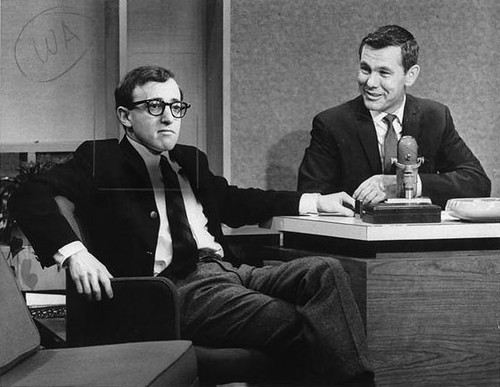Little-Read Writing: "Hood"

In 1925, Ring Lardner published a handsome little volume called What of It? Here's that book's preface:
Preface
Readers of this book, if any, may get to wondering before they are through with it, why it was named What Of It? instead of What For? Well, the name was not selected by the writer, but by Grantland Rice, the poet, and the circumstances were as follows:
We were waiting for something to eat, at Nassau or somewhere, and the conversation had sort of flopped, so I said I was about to publish another book. Mr. Rice started to say something, but didn't. I went on that the publishers were after me for a suitable title and I couldn't think of one.
"It ought to be on the order of 'Hash' or 'Melange' or 'Medley,'" I said. "The stuff in the book is miscellaneous magazine and newspaper stuff, on all kinds of subjects."
Mr. Rice seemed to be pondering, after which he said:
"Didn't you write a thing for 'Liberty' called 'What of It?'"
"Yes," I replied.
"Well," said Mr. Rice, "I think 'What Of It' would be a good title for that kind of book."
So the suggestion was sent in and approved, and the boys at Scribners' thought Mr. Rice ought to be congratulated for what they considered a stroke of genius. But it wasn't much of a strain on my mind to figure out that when I told Mr. Rice I was publishing another book, the thing he started to say and politely didn't was "What of it?" and that's how the phrase happened to be in his head.
It has been my favorite phrase since back in 1913 or '14, or whatever year it was that Hank O'Day managed the Cubs. A modern big league baseball manager is supposed to observe the social amenities, but Mr. O'Day had been an umpire so long that the chip on his shoulder had become a permanent growth.
The Cubs were making their first eastern trip of the season, and with them went their owner, Charles W. Murphy. Mr. Murphy and Mr. O'Day were standing by the desk in the Aldine Hotel at Philadelphia one evening when the hotel's genial manager, whose name I have forgotten, joined them.
"Hello, there, Mr. -----!" said Mr. Murphy cordially. "Have you met my friend, Mr. Henry O'Day?"
"I haven't had that pleasure," replied Mr. -----.
"Mr. -----," explained Mr. Murphy to Mr. O'Day, "is the manager of this hotel."
"What of it?" said Mr. O'Day.
R. W. L.
March, 1925.
Here's a story from What of It? It comes from a section called "Bed-Time Stories."
Red Riding Hood
Well, children, here is the story of little Red Riding Hood like I tell it to my little ones when they wake up in the morning with a headache after a tough night.
Well, one or two times they was a little gal that lived in the suburbs who they called her little Red Riding Hood because she always wore a red riding hood in the hopes that sometime a fresh guy in a high power roadster would pick her up and take her riding. But the rumor had spread the neighborhood that she was a perfectly nice gal, so she had to walk.
Red had a grandmother that lived over near the golf course and got in on most of the parties and one noon she got up and found that they wasn't no gin in the house for her breakfast so she called up her daughter and told her to send Red over with a bottle of gin as she was dying.
So Red starts out with a quart under her arm but had not went far when she met a police dog. A good many people has police dogs, and brags about them and how nice they are for children and etc. but personly I would just as leaf have my kids spend their week-end swimming in the State Shark Hatchery.
Well, this special police dog was like the most of them and hated everybody. When he seen Red he spoke to her and she answered him. Even a dog was better than nothing. She told him where she was going and he pertended like he wasn't paying no tension but no sooner had not she left him when he beat it up a alley and got to her grandmother's joint ahead of her.
Well the old lady heard him knock at the door and told him to come in, as she thought he must either be Red or a bootlegger. So he went in and the old lady was in bed with this hangover and the dog eat her alive.
Then he put on some pajamas and laid down in the bed and pertended like he was her, so pretty soon Red come along and knocked at the door and the dog told her to come in and she went up to the bed to hand him the quart. She thought of course it would be her grandmother laying in the bed and even when she seen the dog she still figured it was her grandmother and something she had drank the night before must of disagreed with her and made her look different.
"Well, grandmother," she says, "you must of hit the old hair tonic last night. Your arms looks like Luis Firpo."
"I will Firpo you in a minute," says the dog.
"But listen grandmother," says Red, "don't you think you ought to have your ears bobbed?"
"I will ear you in a minute," says the dog.
"But listen grandmother," says Red, "you are cock-eyed."
"Listen," says the dog, "if you had of had 1/2 of what I had last night you would of been stone blind."
"But listen grandmother," says Red, "where did you get the new store teeth?"
"I heard you was a tough egg," says the dog, "so I bought them to eat you with."
So then the dog jumped out of bed and went after Red and she screamed.
In the mean w'ile Red's father had been playing golf for a quarter a hole with a couple of guys that conceded themselfs all putts under 12 ft. and he was $.75 looser coming to the 10th. tee.
The 10th. hole is kind of tough as your drive has to have a carry of 50 yards or it will fall in a garbage incinerating plant. You can either lift out with a penalty of two strokes or else play it with a penalty of suffocation. Red's old man topped his drive and the ball rolled into the garbage. He elected to play it and made what looked like a beautiful shot, but when they got up on the green they found that he had hit a white radish instead of a golf ball.
A long argument followed during which the gallery went home to get his supper. The hole was finely conceded.
The 11th. hole on the course is probably the sportiest hole in golfdom. The tee and green are synonymous and the first shot is a putt, but the rules signify that the putt must be played off a high tee with a driver. Red's father was on in two and off in three more and finely sunk his approach for a birdie eight, squaring the match.
Thus the match was all square coming to the home hole which is right close to grandmother's cottage. Red's father hooked his drive through an open window in his mother-in-law's house and forced his caddy to lend him a niblick. He entered the cottage just as the dog was beginning to eat Red.
"What hole are you playing father?" asked Red.
"The eighteenth," says her father, "and it is a dog's leg."
Where-at he hit the police dog in the leg with his niblick and the dog was so surprised that he even give up the grandmother.
"I win, one up," says Red's father and he went out to tell the news to his two opponents. But they had quit and went home to dress for the Kiwanis Club dance.





:max_bytes(150000):strip_icc()/robert_benchley-getty-56af952b5f9b58b7d01ad235.jpg)










